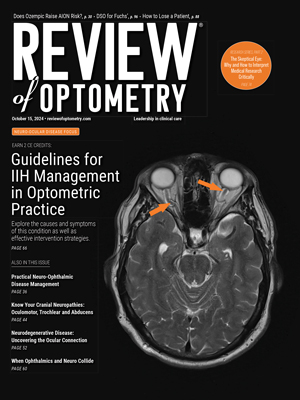Researchers from the University of Toronto and the University of Montreal have found that treating severe dry eye disease (DED) with autologous serum tears significantly reduced dry eye symptoms, demonstrated by high patient satisfaction scores.
The study used three questionnaires—the five-item Dry Eye Questionnaire (DEQ-5), the Symptom Assessment in Dry Eye (SANDE) questionnaire and the Treatment Satisfaction Questionnaire for Medication (TSQM)—to assess symptoms and treatment satisfaction in 100 participants who used autologous serum tears for DED. The overall duration of treatment was one to six months in 25%, six to 12 months in 24%, one to two years in 22%, and two to three years in 29%.
The mean cumulative DEQ-5 score was 12.7±3.8, and 65% of the participants scored ≥12, suggesting an underlying diagnosis of Sjögren's syndrome, the researchers noted. The team also found a significant improvement in overall mean SANDE scores (from 79.5±21.8 to 42.2±23.2), demonstrating patients’ perspective of treatment efficacy in relieving DED symptoms. The mean TSQM efficacy, convenience and overall satisfaction scores were 73.1±17.2, 72.5±17.5 and 74.6±22.7, respectively. Also, the patients reported a reduction in the number of different adjunctive treatment modalities used after the start of autologous serum tears.
Researchers believe that assessing patient satisfaction with their DED treatment using validated questionnaires can impact treatment compliance and disease outcome.
| Kreimei M, Sorkin N, Boutin T, et al. Patient-reported outcomes of autologous serum tears for the treatment of dry eye disease in a large cohort. Ocul Surf. July 2, 2019. [Epub ahead of print]. |

